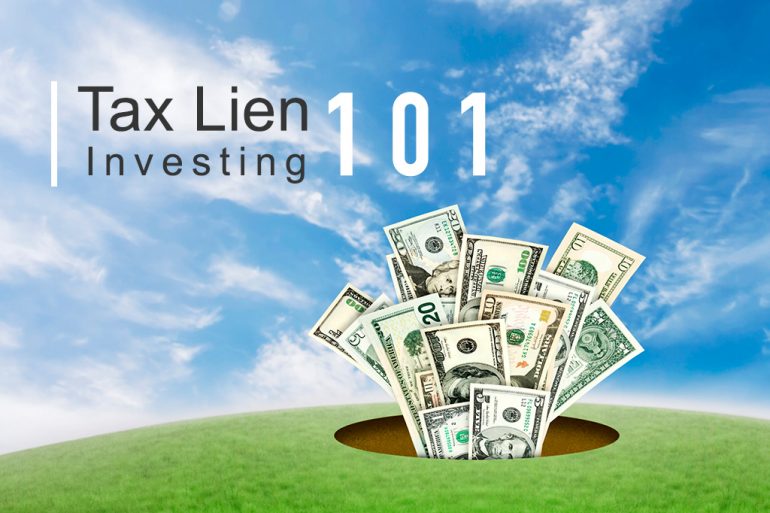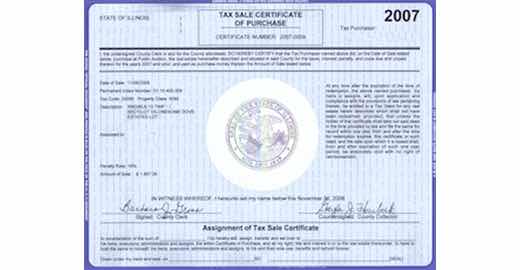All Categories
Featured
Table of Contents
Tax obligation lien investing can offer your profile direct exposure to actual estate all without needing to really own residential property. Specialists, nonetheless, say the process is complicated and advise that novice capitalists can conveniently get shed. Right here's every little thing you need to understand regarding purchasing a tax obligation lien certificate, consisting of just how it functions and the risks included.
The notice typically comes before harsher activities, such as a tax obligation levy, where the Internal Income Service (INTERNAL REVENUE SERVICE) or neighborhood or metropolitan federal governments can in fact confiscate somebody's home to recover the debt. A tax obligation lien certificate is developed when a homeowner has failed to pay their taxes and the city government problems a tax obligation lien.
Tax lien certifications are commonly auctioned off to investors wanting to revenue. To recoup the delinquent tax obligation bucks, municipalities can after that market the tax obligation lien certificate to private capitalists, who deal with the tax costs for the right to collect that cash, plus rate of interest, from the homeowner when they ultimately pay back their balance.
Is Tax Lien Investing A Good Idea
enable for the transfer or task of delinquent genuine estate tax liens to the exclusive industry, according to the National Tax Lien Association, a not-for-profit that stands for federal governments, institutional tax lien capitalists and servicers. Here's what the process looks like. Tax lien financiers need to bid for the certification in a public auction, and exactly how that procedure works relies on the certain district.
Contact tax obligation officials in your area to inquire just how those delinquent taxes are accumulated. Public auctions can be on the internet or personally. Sometimes winning quotes go to the capitalist happy to pay the most affordable rate of interest, in a method called "bidding down the rate of interest." The district develops an optimum price, and the bidder offering the most affordable interest price underneath that maximum wins the public auction.
The winning bidder has to pay the whole tax bill, consisting of the overdue financial obligation, interest and charges. The financier has to wait up until the building proprietors pay back their entire balance unless they do not.
While some capitalists can be compensated, others could be captured in the crossfire of complex guidelines and technicalities, which in the worst of situations can result in substantial losses. From a simple profit viewpoint, a lot of investors make their money based on the tax lien's rate of interest. Rates of interest differ and rely on the territory or the state.
Revenues, nonetheless, do not constantly amount to yields that high throughout the bidding process. In the end, the majority of tax liens bought at auction are cost rates in between 3 percent and 7 percent across the country, according to Brad Westover, executive supervisor of the National Tax Lien Organization. Prior to retiring, Richard Rampell, formerly the chief executive of Rampell & Rampell, an audit company in Palm Beach, Florida, experienced this direct.
How Do You Invest In Tax Liens
At initially, the companions did well. But after that large institutional capitalists, including banks, hedge funds and pension plan funds, chased those higher yields in public auctions around the nation. The bigger financiers assisted bid down rate of interest, so Rampell's team had not been making substantial cash anymore on liens. "At the end, we weren't doing far better than a CD," he claims - is buying tax lien certificates a good investment.
However that seldom occurs: The tax obligations are typically paid prior to the redemption date. Liens likewise are initial eligible repayment, also before mortgages. Nevertheless, tax liens have an expiry date, and a lienholder's right to seize on the residential property or to accumulate their financial investment runs out at the exact same time as the lien.
Specific capitalists that are taking into consideration investments in tax obligation liens should, over all, do their homework. Professionals recommend staying clear of properties with environmental damage, such as one where a gas station dumped dangerous product.
Real Estate Investing Tax Lien Certificates
"You need to truly understand what you're purchasing," states Richard Zimmerman, a companion at Berdon LLP, a bookkeeping company in New york city City. "Understand what the residential or commercial property is, the area and values, so you don't buy a lien that you will not be able to collect." Potential investors need to also check out the building and all liens against it, in addition to recent tax obligation sales and list price of comparable buildings.
Yet, maintain in mind that the information you locate can frequently be dated. "People get a list of residential properties and do their due diligence weeks before a sale," Musa states. "Half the residential properties on the list may be gone since the tax obligations earn money. You're squandering your time. The closer to the date you do your due persistance, the far better.
Investing In Real Estate Tax Liens

Westover says 80 percent of tax obligation lien certifications are sold to participants of the NTLA, and the firm can frequently match up NTLA participants with the appropriate institutional financiers. That could make handling the procedure easier, especially for a novice. While tax lien investments can provide a generous return, know the small print, information and guidelines.
"Yet it's made complex. You have to understand the information." Bankrate's added to an update of this tale.
Home tax obligation liens are an investment particular niche that is overlooked by most financiers. Investing in tax obligation liens can be a rewarding though fairly danger for those who are well-informed concerning genuine estate. When people or businesses fail to pay their property tax obligations, the towns or various other federal government bodies that are owed those tax obligations position liens versus the properties.
Are Tax Lien Certificates A Good Investment
These insurance claims on collateral are also traded amongst capitalists who wish to generate above-average returns. Via this procedure, the town obtains its taxes and the capitalist gets the right to accumulate the quantity due plus interest from the debtor. The procedure rarely finishes with the investor seizing possession of the residential or commercial property.
If you need to seize, there may be other liens versus the residential or commercial property that keep you from taking ownership. You can likewise spend indirectly via residential property lien funds.
It efficiently binds the property and prevents its sale until the owner pays the taxes owed or the property is confiscated by the creditor. When a landowner or home owner stops working to pay the tax obligations on their residential or commercial property, the city or region in which the building is situated has the authority to place a lien on the residential or commercial property.
Residential property with a lien affixed to it can not be sold or re-financed till the tax obligations are paid and the lien is removed. When a lien is provided, a tax obligation lien certification is developed by the district that reflects the quantity owed on the home plus any kind of passion or charges due.

It's estimated that an additional $328 billion of real estate tax was evaluated across the U.S. in 2021. The trend continues. Tax obligations on single-family homes were estimated to climb approximately 3.6% in 2022, to a total of $339.8 billion, and by 6.9% in 2023, to $363.3 billion. It's challenging to evaluate nationwide real estate tax lien numbers.
Latest Posts
Foreclosure Property Tax Liability
Tax Liens New York
Paying Someone Else's Delinquent Property Taxes